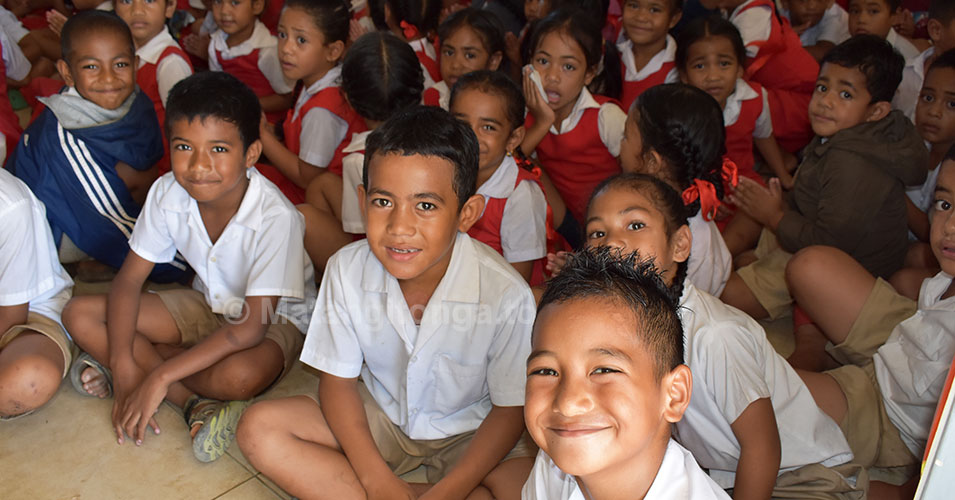
A Pacific Islands Literacy and Numeracy Assessment study will be conducted in 15 Pacific Island countries, including Tonga to provide a snapshot of their primary school students’ grasp of basic literacy and numeracy skills.
The extensive study in October is expected to yield more telling information, following key research design changes endorsed this month. The design changes, which include the use of two scales (a writing scale and a reading scale) to measure literacy proficiency were endorsed by the PILNA Steering Committee at its annual meeting last week.
The changes were proposed by the Pacific Community’s Educational Quality and Assessment Programme after it conducted a field trial with the assistance of its technical partner, the Australian Centre for Educational Research.
Fiji’s representative and national PILNA coordinator Josaia Sila welcomed the separation of the literacy into two scales.
“I think that’s a good way of identifying the weaknesses and strengths in students’ reading abilities and writing abilities,” he said.
Sila said a broad spectrum of students, from upper primary to university level, had very poor literacy skills, and it was imperative that every effort be made to improve this critical learning skill.
“If we are able to identify the students with those problems, then classroom teachers should find a way or should help them out in trying to achieve those skills,” he said. “Then when they leave primary school and move to the secondary level, they’ll have the ability to read, the ability to write well in English.”
The design improvement endorsed by the steering committee also includes the introduction of multi-level modelling, a methodology that will allow for more insight into the PILNA data collected. The PILNA study involves an assessment of students’ skills, and a contextual questionnaire that is answered by students and their teachers. In the last PILNA study, about 40,000 students and 5,000 teachers were involved.
This year’s PILNA study is expected to engage a larger group, said SPC's PILNA lead Torika Taoi. “We would expect a little bit more than the 2018 participation because Papua New Guinea had requested to increase the number of schools that will participate so that it covers all their 23 provinces, and this has been agreed,” she said.
Taoi said the third key improvement was the use of a rotated block design that allows for the same assessment to be presented in different orders or blocks. The design is to ensure factors like student fatigue and time constraints have minimal influence on student performance.



